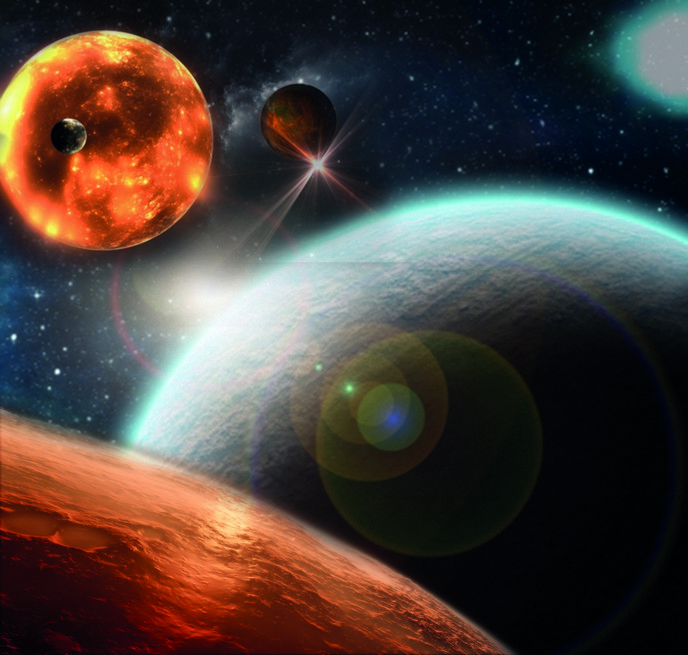Exoplanets: The race to find new planets and life beyond our solar system
Today, exoplanetary research is developing at a startling rate. There have been more than 4 000 exoplanets discovered outside our solar system, illustrating just how diverse the planets in our galaxy are. There is an ongoing race to discover extra-solar ‘Earth-like’ planets where some form of life may have evolved and could therefore, feasibly, host life one day in the future.
In the pursuit of exoplanets discovery
Horizon 2020, the EU’s EUR 77 billion research and innovation funding programme for the period 2014-2020, supports scientific excellence in Europe and has contributed to high-profile scientific breakthroughs such as the discovery of exoplanets as seen with the SPECULOOS project, covered as part of this pack. Whilst larger consortiums on exoplanet research are less common, there are many smaller projects being led by young, passion-driven astronomers through the European Research Council (ERC) and Marie Skłodowska-Curie Actions, for example, who are making large contributions to our understanding of exoplanets and our galaxy.
A focus on the projects
This CORDIS Results Pack focuses on seven projects funded by the EU within Horizon 2020 that put a spotlight on exoplanets. The ABISSE project set out to gain an understanding of exoplanets beyond the solar system and whether they can host life. Another project, DISCO, emphasised the importance of determining the composition of gas and dust surrounding a newly formed star. The DiskTorqueOnPlanets project shed light on the role of cosmic dust in defining the architecture of planetary systems. ExoLights worked towards answering fundamental questions of what exoplanets are, the causes for observed diversity, and whether their formation history can be tracked back from their current composition and evolution. Meanwhile, ExTrA used new telescopes to boost their search of habitable worlds nearby cool stars. The SPECULOOS project helped create a network of pioneering ground-based telescopes. In fact, this project made global headlines when it helped find a planetary system containing seven Earth-sized planets revolving around a small red ultracool dwarf star named ‘TRAPPIST-1’. Finally, the vortex project advanced new vortex coronagraph instruments, enabling astronomers to get closer to the realm of short-period planets.



